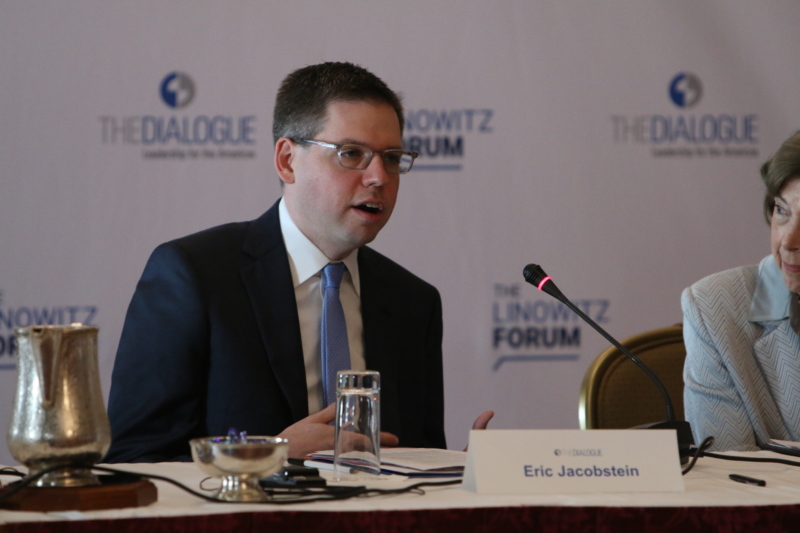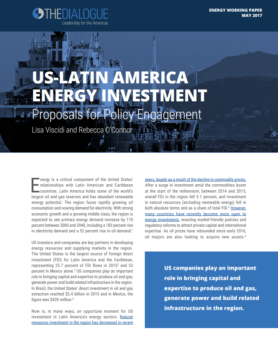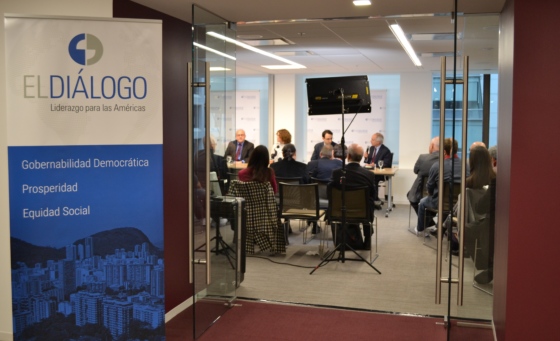Will the New US Aid Plan for Central America Be Successful?
Will Central American governments spend the money effectively? Do the countries in the isthmus have a good plan to fight the drug cartels?
Dialogue alumnus Eric Jacobstein joins the Biden-Harris Administration as a senior advisor to the Latin America and Caribbean Bureau in the United States Agency for International Development (USAID).
Throughout the region, USAID has 14 field offices, 4 regional programs, and Washington-based programs focusing on Cuba and Venezuela. USAID programs help to generate economic prosperity, reduce crime and violence, support civil society, defend universal rights, and protect the environment. USAID works closely with host governments (national and municipal), other US Government agencies, civil society, the private sector, development banks, and international organizations to help achieve enduring results.
Prior to this role, Jacobstein was a senior policy advisor on the House Committee on Foreign Affairs managing the Western Hemisphere portfolio for Chairman Eliot Engel and Committee Democrats. He previously served as the staff director of the Senate Caucus on International Narcotics Control working for Senator Dianne Feinstein. Before that, he worked for the House Subcommittee on the Western Hemisphere and for Representative Jim Kolbe. In his time at the Dialogue, he held the position of manager of legislative affairs.
Jacobstein is an alumnus of the Inter-American Dialogue.
Will Central American governments spend the money effectively? Do the countries in the isthmus have a good plan to fight the drug cartels?
While the Trump administration’s “America first” policies are aimed primarily at giving higher priority to national security and economic growth for the United States, the White House’s approach will have impacts on energy relations with the rest of the hemisphere that should also be considered.
In the early 1980s, when the Inter-American Dialogue was born, the U.S. was actively supporting right-wing governments from El Salvador to Nicaragua. There were “tremendous misunderstandings between Latin America and the United States,” says Michael Shifter, longtime president of the D.C.-based think tank. These days, it seems those tremendous misunderstandings have returned with a vengeance, making the Dialogue’s work even more relevant.
 Inter-American Dialogue
Inter-American Dialogue

